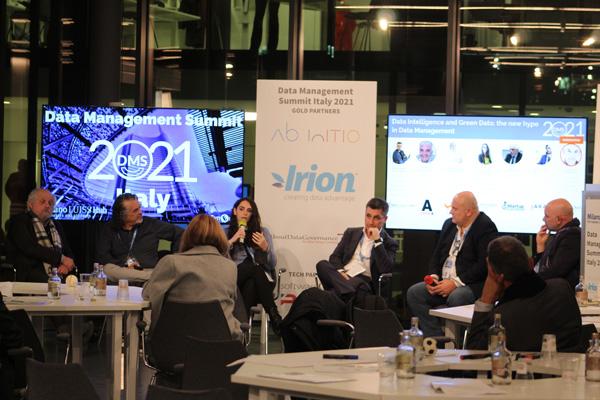What is Data Intelligence? What is the need that prompted companies to introduce it in this period? Is it possible to talk about Green Data?
These are just some of the questions that echoed in the walls of the Luiss Hub in Milan, where the Italian edition of the Data Management Summit 2021 was held on November 23rd. Here Pragma Etimos was one of the protagonists of the round table “Data Intelligence & Green Data: the new hype in Data Management “.
Here are our food for thought:
Data Intelligence: why now?
We have been hearing about Data Intelligence for a few years now, but to date it has been necessary to stop just talking about it and start applying it.
The Covid-19 pandemic has led to enormously speed up digitalization, not only of companies, but also of the Public Administration. We think of all the e-commerce or online services born in the last two years. The consequence was the emergence of an enormous amount of digital data.
Let’s reflect on the numbers mentioned several times in previous articles: in 2018 we collected 33 zettabytes of data worldwide; in 2025 we expect to reach 175 zettabytes.
How much of this data will actually be usable?
It is time to think less about quantity and focus on the quality of data.
Data Intelligence should not only concern the final process of extracting the meaning of the data, its value. But starting from how we create data, from asking ourselves what is the purpose for which we want it, with what other data it will have to communicate, what are the tools we will use to collect it and to create “intelligence”.
To create value, benefits, within organizations, starting from data, we need them to be:
- Complete
- Structured
- Related
- Cataloged
- Classified
Otherwise we won’t do anything with that data. They will add to that mountain of digital junk that we have been accumulating for years and that is turning into an ever increasing cost, not only for companies, but for all of us with a view to sustainability.
With this we can reconnect to the second food for thought.
Is it possible to talk about Green Data?
“Compulsive hoarders”.
Here’s how to define many organizations that have been collecting data in an undifferentiated way for years, without even wondering if they are usable.
Can we retrieve this data and turn it into useful information?
It depends. Data has a temporal value, so we are not sure of being able to use it. What we can do is a census within the organization to understand which data we can update, which to relate to other data collected over time and which is now obsolete and must be discarded.
The reflections that emerged during the Data Management Summit on what Green Data were focused on two main themes, to which Pragma Etimos added a third point, broadening the vision.
- Digital data occupies physical space in hardware that has a short duration of time and that must be constantly replaced (creating garbage that is difficult to dispose of). These hardware are stored in Data Centers which consume a lot of energy. A first approach to “green” data could be to keep only the data we need, to make everything more sustainable for the environment. The challenge in this case lies in understanding which data are really useful (a figure that I don’t need today, it could be useful in a few years).
- “Clean” data would lead to more effective analyzes and strategies also in the field of environmental sustainability.
- The last point embraces what was said in the previous two, but focuses on a broader concept of sustainability, which embraces not only the environmental, but also the economic, social and digital one. In the Agenda 2030 it is said that “Digital” can contribute to the achievement of the 17 objectives for the sustainability of the planet (understood at 360 ° and not just environmental). But if this “Digital” is full of junk data that we have been accumulating for years, how can it contribute to sustainability?
From this last reflection comes the concept of Green Data seen as an awareness on the part of those who work with data. This is not a predefined method, or a particular technology. It means developing new solutions to collect and recover data correctly, transforming the garbage-in, garbage-out effect into garbage-in, value-out. Only in this way will we be able to “clean up” digital, making sure that it can be useful for new strategies based on data from a perspective of economic, social and environmental sustainability.
Does the data have value?
The topic that has been discussed and that we want to deepen, is that of the intrinsic value of data. The debate was precisely on the possibility that data at their birth already have a value or not.
In our opinion, we could speak of “null” value only if we let, as has been done up to now in many organizations, accumulate data without giving it a purpose. Bad data collection and its bad management could be defined as immaturity due to the lack of knowledge of the potential that the data itself has.
At the very moment in which we decide to collect and analyze certain data in relation to objectives, we are establishing a value. In addition to the final extraction process, Data Intelligence must lead to a greater awareness of the value that data has and which until now has been underestimated. The more classified, structured, cataloged data we have, the more we will be able to capitalize on the benefits they can bring.
Some photos of the Data Management Summit
Beyond the Data Management Summit
There are many topics we would like to talk about at the Data Management Summit (DMS), including:
- The link between Artificial Intelligence and Human Intelligence and how Data Intelligence can contribute to synergy between the two;
- The ethics behind artificial intelligence;
- The data life cycle;
- How do we imagine the world in 10 years without Data Intelligence;
We will deepen them in the next articles and maybe, if there is an opportunity, even at DMS 2022.
MORE TO EXPLORE …

DIGITAL SUSTAINABILITY: SEE DAYLIGHT THANKS TO THE DATA CULTURE
Having so much data available does not automatically mean creating “intelligence” and value. The speed with which technology is taking root in our lives has not given us the time to realize the real consequences (whether positive or negative). Through it we collect,…

BIG DATA & SEMANTIC CLUSTERING: HOW TO CREATE VALUE STARTING FROM UNSTRUCTURED DATA
Today the challenge of organizations is to create information, innovation and value starting from Big Data. Data, in fact, are the vital energy that powers all business processes, projects and strategies. The importance of Big Data Today’s market is…
Data Intelligence & Green Data
However the need to clean up the data leads us to green data. Such as computer vision solutions. In fact, it is essential to clean the data to have intelligence.

